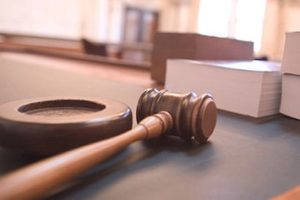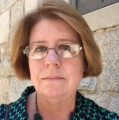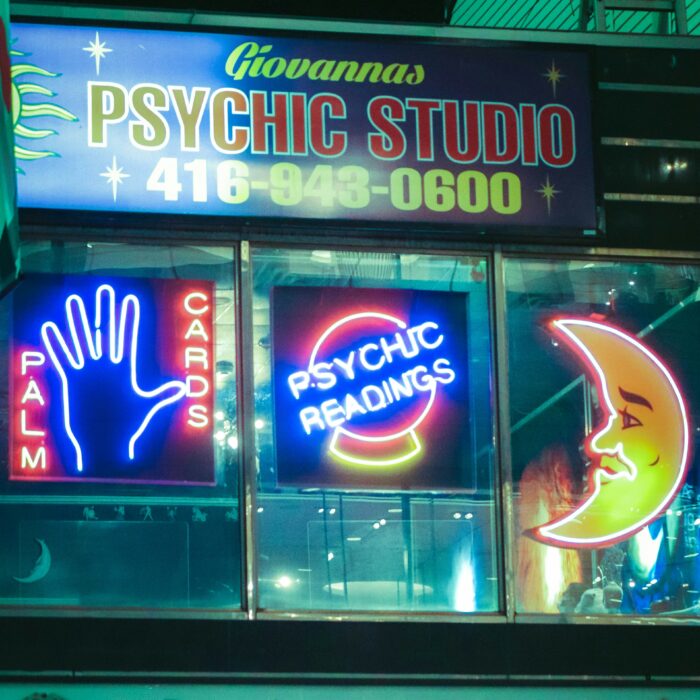You have no items in your cart. Want to get some nice things?
Go shopping In 1937, before the Great Depression released its grip on America, my father and his parents lived in a tent. In west Texas, where they were from, there were still rumors of jobs to be found in California. My grandfather and his best friend made the trip to the coast to find that the only work to be had was picking fruit for ten cents an hour. The two men, who were good pilots and better mechanics, turned their backs upon the so-called promised land and drove east to chase another rumor. They found jobs in the silver mines of southern Arizona, and sent for the rest of the family. My grandmother left her Hill Country hometown and set off for the desert with two small children and all the expectations of a normal life.
In 1937, before the Great Depression released its grip on America, my father and his parents lived in a tent. In west Texas, where they were from, there were still rumors of jobs to be found in California. My grandfather and his best friend made the trip to the coast to find that the only work to be had was picking fruit for ten cents an hour. The two men, who were good pilots and better mechanics, turned their backs upon the so-called promised land and drove east to chase another rumor. They found jobs in the silver mines of southern Arizona, and sent for the rest of the family. My grandmother left her Hill Country hometown and set off for the desert with two small children and all the expectations of a normal life.
Instead of bringing them together, the Depression tore my family apart. There wasn’t enough housing for the thousands of men who showed up begging for work, and almost everyone lived in tents. It was a miserable existence: suffocating when the summer temperatures shot up to one hundred and twenty degrees, and freezing when the winter rains came howling down from Mogollon Rim. Every morning, my grandmother, infuriated at being brought down to the level of a migrant worker, would storm into the mine manager’s office. Eloquent with rage, she demanded that her family be given an adobe house. It turned out to be a drastic miscalculation. The manager got so tired of dealing with this angry young woman that he did the most expedient thing: to be rid of her once and for all, he simply fired her husband. Not surprisingly, the marriage fell apart; almost immediately, my grandmother packed up the children and drove off into the night with her husband’s best friend. My grandfather hopped a train back to Texas, where he would take his own life a few years later.
All those troubled lives were on my mind one morning in February, as I waited for a Red Line train to Union Station. The platform at North Hollywood was populated by two kinds of Angelenos: businessmen in pricey suits on their way to offices on Bunker Hill, and shabby, depressed-looking people headed for sweatshops or janitorial gigs. I was a hybrid, a woman in a suit, bound for a building I didn’t work in. In other words, I was on my way to jury duty.
Everyone complains about having to do jury service, but under normal circumstances I love it – a day off from work, endless possibilities to meet interesting people, and the chance to participate in the democratic process that makes our country great. Today, I was simply glad to have it as a distraction. As the train pulled out of the station, my eyes roamed over the dejected commuters and wondered how many of them actually had jobs. At Universal City, a mime got on the train and sat across from me unblinkingly. It was depressing to realize that a man covered in face paint and decked out in clown clothes was more successful than I was, but at that moment almost anyone could make that claim. Even Briscoe the therapy dog, who was a regular fixture at my church, had a job. As the train rumbled beneath Cahuenga Pass, I tried to ignore the glassy-eyed stare from across the aisle. My mind reeled at the thought of mortgage payments and I wondered if I’d end up living in a tent myself. If anyone on that car wondered about me, they would have placed me alongside the businessmen – a professional, one of those women who had a secure position in some important firm. An employee with a proven track record and nothing to worry about. If anyone had drawn that conclusion, they would be wrong.
The world as I knew it had ended four days earlier, as I stared at an x-ray on my computer screen. Without being asked, I had planned to work late. It wouldn’t do to leave any loose ends that would have to be resolved the following week, because after all, the Federal court had requested the pleasure of my company. It was down in the schedule, and I would be out. Boy, would I be out.
The phone rang, shattering my concentration. “Linda? This is Francine from HR. I have your supervisor here on conference.” It didn’t take an MBA to know what that meant. There was a carefully rehearsed preamble about the bad economy and how it had affected our company. And how sorry they were, but they were going to have to let me go. How much they thanked me for my many years of service. “You’re welcome,” I heard myself saying in a wooden voice. There was a lot more I didn’t hear, about the cessation of health coverage and separation papers that had to be notarized. In a five-minute phone call, twenty-four years of my life had been wiped away like a discarded lesson plan on a high-school chalkboard.
The morning that had not yet dawned up in North Hollywood had blossomed into golden effulgence by the time I got off the train and walked to the courthouse on Spring Street. It was the kind of morning that Californians brag about, a blue, smogless sky and temperatures well on the way to seventy degrees. There was a feeling in the soft morning air that lent itself to optimism. Perhaps I would get on a jury; Federal court paid more than its Superior cousin, and there would be mileage as well. Some extra money and a nice long trial – weeks, hopefully – would buffer the shock of this sudden and unasked for freedom.
Like snowbound travelers marooned in an airport, three hundred of us sat around the jury room waiting for panels to be called beneath big screen TVs turned to CNN. A financial commentator speculated on the housing crisis, the mortgage crisis, the unemployment crisis, and offered as his parting shot the notion that we were not facing a Carteresque recession, but a second Great Depression. Unpleasant images came to mind of breadlines and Dorothea Lange photos, of my grandparents and their year in Arizona. I wondered if unemployment benefits would cover my mortgage, and if not, would I end up in a tent on the banks of the dry riverbed that I saw each day from my balcony. It seemed like a good idea to put some distance between the media and myself, but every seat in the room was taken. Beside me, a pastel and polyester lady was absorbed in a Jan Karon novel. Wedged between the pages was a brass USC bookmark, and I wondered if she was from Pasadena. Perhaps she was one of those Pasadena housewives who were taken care of, financially – someone who’d had the good sense to marry well, or at the very least, came from old money and had never known a day of struggle in her life. I hated her.
At mid-morning the first panels were called. My group was whisked down to the second floor to a plush courtroom worthy of a movie set. After the charges were read to us, twelve names were announced and those called filed one by one into the jury box. My name was number seven. Lucky number seven! The plaintiff, his attorney and the prosecutor eyed us like birds of prey, already planning their preemptive strikes. “Don’t take it personally if you’re excused,” the judge warned us. “It’s just part of the process.”
That said, the twelve of us were sworn in and the grilling began. A questionnaire was passed from one juror to the next, along with a microphone. The questions were basic stuff, outlining the bare bones of our lives plus our prior juror history. But when the form came to me, it read like a litany of every failure and every bad choice ever made. “My name is Linda Critchfield. I live in Santa Clarita. I am unmarried, I have no children, and am currently unemployed.” There, in a Federal courthouse, under oath, I finally said aloud the words I’d never dreamed I would have to say.
After everyone had answered the first round of questions, the lawyers swooped in. The plaintiff’s attorney immediately focused on me, and wanted to know about my previous employment. I described the work I would never do again, preparing treatment plans for orthodontic patients, watching the expression on his face grow increasingly perplexed. After a bemused shake of the head, he moved on to the important question: “Ms. Critchfield, what are your favorite magazines?”
I understood his intention, to get a clearer reading on me, my dead career being too weird to pigeonhole. Things might have worked out differently if I had answered Reader’s Digest or Playgirl. But I didn’t; startled by the simplicity of the question, I cast him a deer-in-headlights look and blurted out the first magazine that came to mind.
“Um … Smithsonian.”
He nodded, a knowing look on his face. “Television shows?”
The American Experience isn’t the kind of program you remember in moments of stress, so after drawing a blank, I shrugged, saying that I didn’t watch much television except for the news. He thanked me and yielded the floor to the prosecuting attorney, who moved on to the next victim. As I watched, he whispered something to his client with a dismissive wave, which I interpreted to mean, “She’s so out of here.” Which it did; my name was their first strike.
Los Angeles was well into the lunch hour by the time we rejects were finally set loose. While we were in the courtroom, the day had changed. The air was too warm, and the sky had become eerily sharp. With nowhere to go and no appointments to keep, I walked around aimlessly toward the Central Library, thinking about the judge’s words: don’t take it personally. I had heard the same thing, more or less, in that last conversation with my supervisor. “I had no choice,” she said. “I had to go by seniority.” One by one, I had watched people leave. Now, it was my turn. Those twenty-four years didn’t matter. They were now ashes at my feet.
Above the skyscrapers, a 747 made a deep curve for its approach to LAX. I stopped, a lone figure among the lunching office workers of Bunker Hill and watched the plane complete its low turn in the crystalline sky. It was the kind of day that pilots refer to as “severe clear,” when everything is visible on the horizon except for undreamt-of catastrophes. I thought of all the people I knew, who in a moment had the rug pulled out from under them, so many dreams that got put on hold, and wondered how many casualties were yet to come. It would be a long time before there would be any airplanes in my future. The only travel that awaited me was a commuter train, taking me back to the Valley where no one awaited my arrival. Maybe I would encounter the mime on his way home from work. He would stare, perhaps seeing through the failure that wrapped itself around me like a serape. But it wouldn’t be anything personal.

About Linda Critchfield
Linda Critchfield read natural sciences in college and spent twenty years working as an orthodontic imaging analyst before being laid off during the recession of 2008. Her search for a new career path in the midst of middle age has been one of the inspirations for her writing. After leaving the dental field she worked in a variety of jobs including map survey analyst, roadkill cleanup coordinator and paperwork drudge to a group of tax collectors. She is a civil servant and lives in Southern California.



